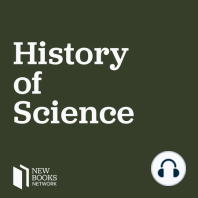68 min listen

J. C. McKeown, “A Cabinet of Ancient Medical Curiosities: Strange Tales and Surprising Facts from the Healing Arts of Greece and Rome” (Oxford UP, 201…
J. C. McKeown, “A Cabinet of Ancient Medical Curiosities: Strange Tales and Surprising Facts from the Healing Arts of Greece and Rome” (Oxford UP, 201…
ratings:
Length:
50 minutes
Released:
Apr 29, 2017
Format:
Podcast episode
Description
The back cover of J. C. McKeown‘s new book, A Cabinet of Ancient Medical Curiosities (Oxford University Press, 2017), is adorned not with review quotes from contemporary scholars, but rather the discordant voices of the medical writers he excerpts. Speaking of Galen, Photius of Constantinople notes that the author tends to overload his writings with irrelevancies and digressions. Aristotle offers a characteristic caution, urging no one can become a doctor by reading books. These statements intimate the overall style and aims of this entertaining book: to approach the culture of antiquity through medical practice and belief. Though McKeown deliberately goes after the uncanny in selecting his excerpts to translate, one gets an overall impression of medicines remarkable continuity. Class, gender, and race were battlegrounds of medical legitimacy as much as they are now, and contemporary suspicion of medical advances was potent as ever. McKeown opts for evocation rather than scholarly interpretation of the medical cultures of antiquity, making this book entertaining reading for anyone interested in medicine’s long history.
Learn more about your ad choices. Visit megaphone.fm/adchoices
Learn more about your ad choices. Visit megaphone.fm/adchoices
Released:
Apr 29, 2017
Format:
Podcast episode
Titles in the series (100)
Roger Hart, “The Chinese Roots of Linear Algebra” (Johns Hopkins UP, 2011): Roger Hart‘s The Chinese Roots of Linear Algebra (Johns Hopkins University Press, 2011) is the first book-length study of linear algebra in imperial China, and is based on an astounding combination of erudition and expertise in both Chinese history and... by New Books in the History of Science